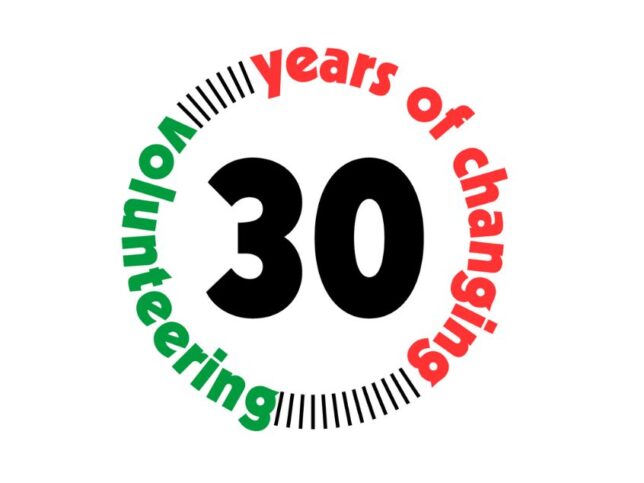
Glasgow Women’s Library (GWL) celebrated its 30th anniversary in September 2021. As we now enter our fourth decade we ‘look back to move forward’ through our 30 Years of Changing Minds Blog Series by staff and volunteers.
This blog was researched and written by Catherine who is doing a six month placement at GWL as part of her PhD.
This is the third and last of my blog posts about Lesbians in Peer Support (LIPS), the youth group that GWL ran from 2000 to 2006.
2003 marked a new phase for LIPS. The group received a second round of funding from Comic Relief, ensuring that it could continue for another three years. In the second half of its run, LIPS aimed for a more peer-led approach, with many of its members training as peer educators and befrienders. This is reflected in their regular column in GWL’s newsletters, ‘Read Our LIPS’, where young members of the group reported on their goals and activities. LIPS members continued to take part in creative, community building and educational workshops, and they continued to take part in broader efforts to improve the lives of queer young people across Scotland. In 2005, six “LIPS lassies” attended an LGBT youth conference in Dumfries called ‘Have Your Say’, where they built links with other queer youth groups and advocacy organisations.
This was also an era of significant expansion for GWL, which had started to receive funding for other projects alongside LIPS, including the Adult Literacy and Numeracy project and the Lifelong Learning project. Between 2002 and 2006, GWL also secured enough funding to appoint a librarian and a writer in residence. As the library grew and reached more and more readers, activists, artists and volunteers, LIPS was winding down. Comic Relief’s policy was to fund projects for no more than six years and by 2005 LIPS was tapering off, running fewer meetings and group activities. After one of LIPS’ staff members, Shona Bruce, left the group in 2004, a “tiny army of volunteer youth workers [stepped] into the breach,” as one member puts in a GWL newsletter, facilitating meetings and trying their best to bring in new members. Around this time, in another GWL newsletter, LIPS member Melanie Borthwick wrote that she and other peer educators were “working exceptionally hard to curb dwindling numbers at LIPS.” Part of this effort involved setting up a short-lived LIPS website and putting up LIPS posters in universities and schools across Glasgow. Despite their hard work, the group came to an end in 2006.
Why did LIPS end? Funding is one, but not the only, reason. Although members came and went throughout the group’s run, LIPS had a core membership who, by 2006, had mostly aged out of the under 25 demographic. In the six years since LIPS’ founding, the landscape for queer young people had also changed significantly. Section 28 had been struck down across the UK in 2003 and civil partnerships for same-sex couples were introduced in the following year. This legislation didn’t eradicate homophobia – far from it – but it gives us a sense of a gradual sea change in social attitudes to gay, lesbian and bisexual people around this time.
This change was also becoming visible in services for trans young people in Scotland, who were beginning to play a more vocal role in queer organisations. The Stonewall Youth Project changed its name to LGBT Youth Scotland in 2003, and in 2005 LIPS peer educators attended training sessions on trans issues, with the aim of raising awareness within the wider group. While trans, gender nonconforming and gender-questioning young people had always been involved in queer youth groups across the UK, they were beginning to receive more formal recognition.
By the mid-2000s, the internet was another factor transforming the ways that queer people – including queer young people – found each other and formed communities. Physical spaces remained important, but correspondence and first-time user sheets in GWL’s archive show that early digital spaces like the Glasgow gay website ‘G zone’ and other online forums were increasingly important ways of meeting other LGBTQ people and building queer communities. Not at all LIPS members agreed that the group had run its course – at least one member suggested keeping it going on a peer-led basis – but by 2006, changing circumstances within and beyond GWL meant that it was time to move on.
A lot has changed for LGBTQ young people in the UK in the two decades since LIPS ended. While queer young still face homophobia and transphobia in their schools, homes and communities, some of the social and political changes that have taken place in the lives of LGBTQ people would have seemed unimaginable in 2000. In other ways, however, the transphobic media discourse that we see today eerily echoes the widespread homophobia of the early 2000s press. Through photos, videos, administrative records and other materials, the LIPS collection in GWL provides both a fascinating glimpse into a past era of LGBTQ life in Glasgow, and a very personal snapshot of a moment in the lives of the hundreds of young queer people that LIPS reached over its six-year run.

This video is licensed under a Creative Commons Attribution 4.0 International License.

2 replies on “Lesbians in Peer Support- Blog 3”
Although I couldn’t find to read the final Blog 3 of LIPS,
I’ve been very moved by your efforts and discussion of how the group evolved and how important it was.
Thank you for writing about it–and not just letting it live in a few memories.
Maggie McFadden, Founding Director, Women’s Studies, Appalachian State University, Boone, NC 28608 (just turned 82!
Hi Maggie, Thank you for your feedback. I’m sorry you couldn’t find the final blog. Here is the link: https://womenslibrary.org.uk/2023/07/06/lesbians-in-peer-support-blog-3/
Best wishes and belated happy birthday!